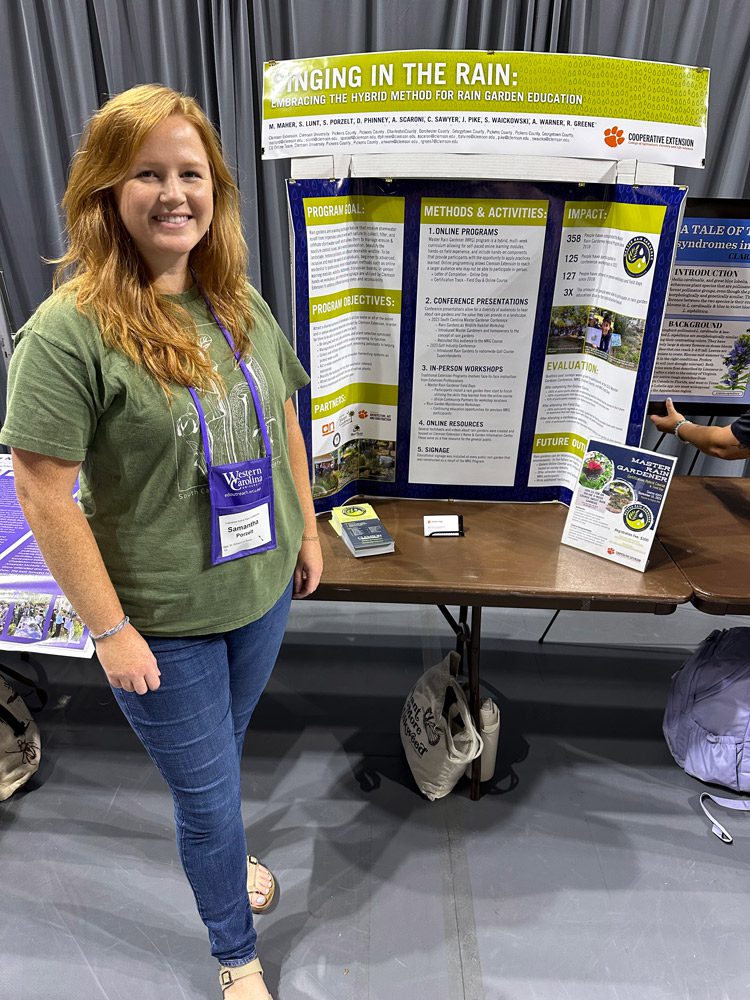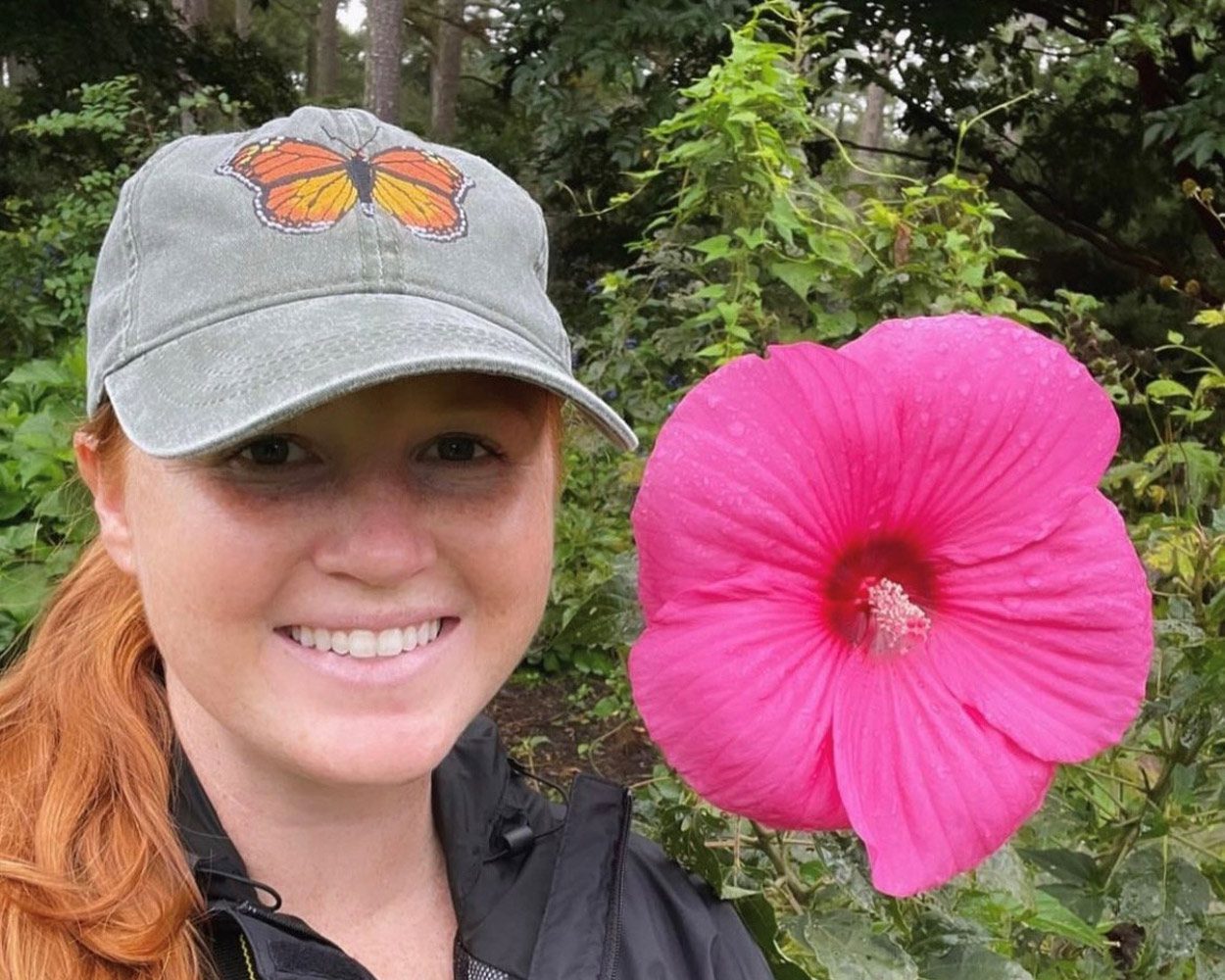Samantha Porzelt wanted to further her professional development as a water resources agent for Clemson Cooperative Extension Service in Charleston, Dorchester and Berkeley counties.
She decided to pursue a master’s degree in the University’s wildlife and fisheries program. Because she was a full-time employee at Clemson, she opted for the fully online, non-thesis track. Two-and-a-half years later, Porzelt is set to complete the program.
“There were enough courses that really aligned with my role in Extension,” Porzelt said. “I’m glad I did it because so much of the coursework was relevant to my work. I work specifically in stormwater and in many of the classes, we had opportunities to select our own topic for term papers and projects. I could always tie it into my role in stormwater.”
When Porzelt came to work for Clemson Extension about four years ago, she remembered learning about the opportunity to continue her education. She decided now was the time to do it.
“I love to learn,” she said. “That’s part of why I love working for Clemson, because working for a higher education organization, there’s always an opportunity to learn. I wanted to dive deep into current conservation research and it had been 10 years since I received my undergraduate degree through Texas A&M at Galveston. It was just really appealing that I could do that as a benefit of working for the University. It just kind of lined up with a lot of my interests.”

At first, the thought of going back to school while working full-time was intimidating for Porzelt. She chose the non-thesis track to focus more on her coursework. She took two classes each semester, which allowed her to complete her degree in two and a half years.
“My supervisors have been really supportive of my time spent on this program,” Porzelt said. “All of the materials are usually posted on a Monday and we have until Sunday to finish everything. I truly enjoyed the courses that I took. I’ve had great professors. When it did overflow to the weekends and evenings, I didn’t mind because I loved what I was learning.”
Porzelt has already experienced how what she has learned has helped with her work at Extension both in writing publications and giving presentations.
As a water resources agent, Porzelt’s work has two main functions – Coordinating a local stormwater consortium that covers Charleston, Berkeley and Dorchester counties and working as a statewide coordinator for Clemson Extension’s Master Rain Gardener program.
Consortium members get together to discuss various stormwater issues that they have encountered and how they can work together to provide outreach on the topic. As the coordinator of the Master Rain Gardener program, Porzelt oversees the online training course for professional and residential audiences on how to design, install and maintain rain gardens, which also benefit from stormwater.
Porzelt’s background is in biology and water quality. She mostly grew up in Texas and received her bachelor’s degree in marine biology from Texas A&M at Galveston. After that, she worked for eight years as a biologist in public aquariums where she was involved in animal care and representing those habitats, while educating the public about the ocean and the local species living there.

As her career progressed, Porzelt’s interests shifted to where the water meets the land, such as salt marshes and stream banks. She began learning about plants and how they benefit water quality and the watershed overall.
“Eventually, that led to some training courses and that qualified me for a job as an Extension agent,” she said.
Porzelt has been with Clemson Extension for four years.
“I love working on a local level,” Porzelt said. “I’m familiar with the ins and outs of Charleston. I do get a little bit of a taste of working statewide with the Master Rain Gardener program and would love to continue doing that work and working with folks across the state.”






